Swami Vigyananand promotes new book 'The Hindu Manifesto' in U.S.
The book discusses the eight Hindu sutras-- core principles meant to guide Hindus as a people and a civilization.
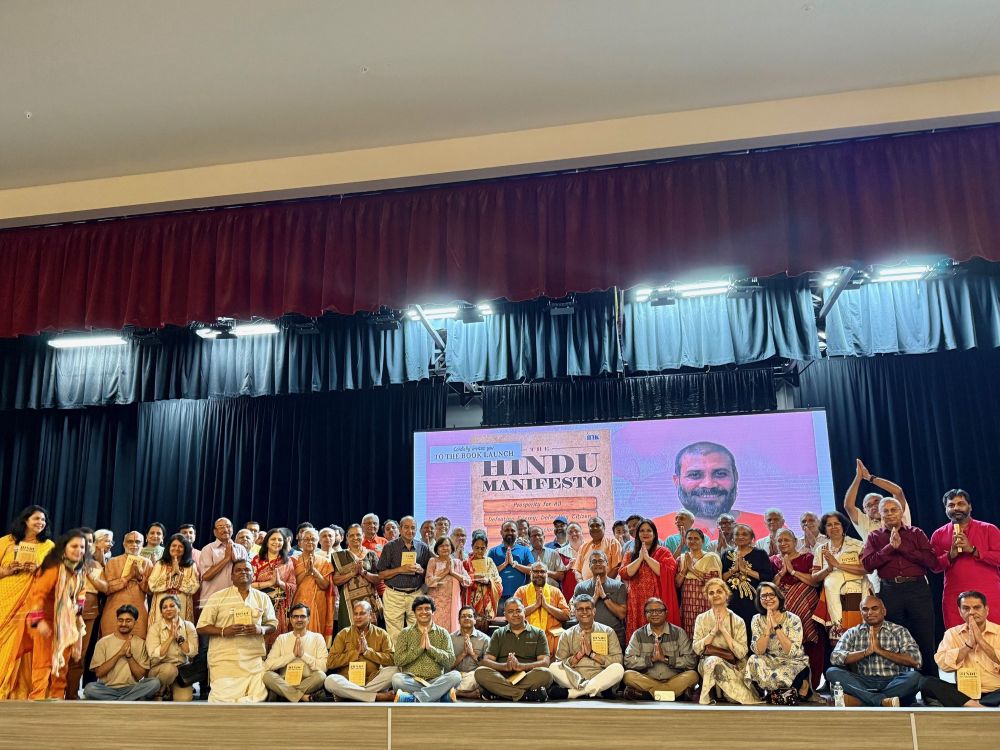 Swami Vigyananandji’s recent appearance at the GSH Event Center in Houston was just one stop in a series of packed events across the U.S. / Courtesy Photo-Juhi Varma
Swami Vigyananandji’s recent appearance at the GSH Event Center in Houston was just one stop in a series of packed events across the U.S. / Courtesy Photo-Juhi Varma
Swami Vigyananand is not your typical swami. He’s candid, refreshingly blunt, and doesn’t dismiss wealth creation as mere materialism. In fact, he argues that building a strong economic foundation is essential for any civilizational revival. His latest book, The Hindu Manifesto discusses the eight Hindu sutras-- core principles meant to guide Hindus as a people and a civilization.
Published on April 26, 2025, the book has already sold thousands of copies. Swami Vigyananandji’s recent appearance at the GSH Event Center in Houston was just one stop in a series of packed events across the U.S.
About 150 people gathered at the GSH Center on June 2 to meet Swamiji, pick up signed copies, and join the discussion on The Hindu Manifesto.
“I met (Swami Vigyananand) one year ago, and I was very impressed by his clarity and practical advice,” said Giyarpuram Prasad, a resident of Clear Lake. “He was able to connect with people quite easily, and speak confidently and assertively about Bharat, and which is always interesting, especially for people outside.”
Interestingly, the book tour wasn’t planned. Swamiji hadn’t intended to promote the book in America, but strong interest and numerous requests led him to go ahead with it.
A call for unity
The Hindu Manifesto draws on several foundational texts, including the Vedas, the Mahabharata, Valmiki’s Ramayana, Kautilya’s Arthashastra, and Shukracharya’s Sukranitisar.
India’s colonial past left a deep psychological scar, causing many to forget that Indian civilization once produced such advanced political thought, said Houston resident Madhukar Adi at the book signing.
“As more people take interest in India’s own history and ideas, it’s no surprise that treasures like the Arthashastra are back in focus,” he said. “I heard about this, so that is the reason why I said, okay, let me check it out. I'm expecting something good out of this new book.”
The Arthashastra is an ancient treatise on statecraft, politics, and economic policy.
Swami Vigyananand serves as the joint general secretary of the Vishva Hindu Parishad (VHP). He is also the visionary behind the World Hindu Congress (WHC) and the World Hindu Economic Forum (WHEF), global platforms designed to accelerate the Hindu renaissance.
Swamiji praised the Hindu organizations in Texas but stressed the need for greater unity and coordination. Upon hearing about the Texas Hindu Campsite in Columbus, he proposed that five representatives from each group attend a three-day retreat there to strengthen bonds and foster collaboration.
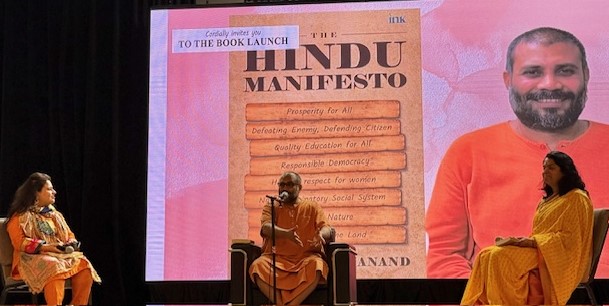 Swami Vigyananand in Houston. / Courtesy-Juhi Varma
Swami Vigyananand in Houston. / Courtesy-Juhi VarmaSo, who is Swami Vigyananand?
Swamiji received his BTech from the Indian Institute of Technology (IIT) Kharagpur in 1985. For those unfamiliar, IITians are the cream of Indian academia. Gaining admission to an IIT in the 1980s meant conquering brutal entrance exams in physics, chemistry and mathematics, beating out hundreds of thousands of other applicants. It meant a ticket to elite jobs and immigration to prosperous countries like the U.S. or U.K. It meant prestige, wealth, and often, a very favorable marriage market.
But at the age of 23, just two years after graduating, he renounced it all. He became a brahmachari and chose to walk the country with a begging bowl.
Why? He points back to his time at IIT, where he’d been troubled to meet professors who’d subtly—and sometimes not so subtly—promoted Marxism and socialism.
“It was not really allowed, but a professor would, for example, call four students to his office and ‘educate’ us about how well things were going in Russia and China,” Swamiji said. “The Russian magazines were colorful and glossy; we were very impressed. Professors would say Bharat is backward and poor because we had not followed the Marxist model. And Hindu feudalism was responsible for all of this.”
Their dismissal of Hinduism, and their push for a “secular, socialist republic” as described in Indian textbooks of the time, all pushed young Vigyananand to ask deeper questions.
“At the same time there was an anti-communist league in Calcutta, they would send out pamphlets,” he said.
The plain pamphlets shocked those who read them, revealing that in China and the Soviet Union, farmers had no land rights, harvests were faked, and dissent was brutally crushed. Students who challenged their professors using the information from these pamphlets were labeled “reactionary”, Swamiji recalled.
Instead of turning away from his roots, young Vigyananand immersed himself in Hindu scripture and philosophy. He read Swami Vivekananda, Tagore, and Rama Tirth, not just to find answers for himself, but to arm others against the same intellectual ambushes he had faced. That search became his life’s mission: to restore civilizational confidence in young Hindus.
A strong economy
Reading the shastras, Swamiji found their wisdom deeply relevant to modern times and felt it needed to be presented clearly and systematically. The eight sutras are as follows:
-
Prosperity for all
-
Defeating enemy, defending citizens
-
Quality education for all
-
Responsible democracy
-
Highest respect for women
-
Non-discriminatory social system
-
Care for nature
-
Respect for the land
“The first sutra is prosperity for all—Hindus want everyone to be prosperous, and that is our first principle,” he said, addressing the audience at the GSH Center. “For any society to have a renaissance and resurgence, a strong economy is a must. Unfortunately, for the last 150-200 years, actually for the last 500 years, we have ignored this profound teaching of our shastras.”
Swami Vigyananand called out other spiritual leaders who denounce material pursuits as mere illusion, observing that they conveniently make this pitch in the U.S. where it boosts their funding.
He said that the refrain “sansaar maya hai” (“the world is an illusion”) has made Hindu society reluctant to acknowledge the importance of wealth creation.
“Yet while the world may be an illusion, dakshina or donations certainly are real, aren’t they?” he added, as the audience burst into applause.
The second sutra—“defeating enemy, defending citizens”— also resonated strongly with the audience.
Megha Raja and Sheetal Kohli emceed the GSH event, asking sharp questions—including one on the ongoing Operation Sindoor—during which Swamiji insisted that a proven enemy must be crushed without mercy.
“Never take pity on your enemy,” Swami Vigyananand said. “The enemy must be identified and destroyed. We’ve forgotten this wisdom, and that is why we are suffering,”
Additionally, the book states that Hindu scriptures and early Hindu society did not discriminate by varna, jati, gyati, skin color, or gender, stating that many original terms lost their true meanings and sometimes acquiring negative connotations due to mistranslations.
ADVERTISEMENT
ADVERTISEMENT
E Paper
Video




1749580004.png) Juhi Varma
Juhi Varma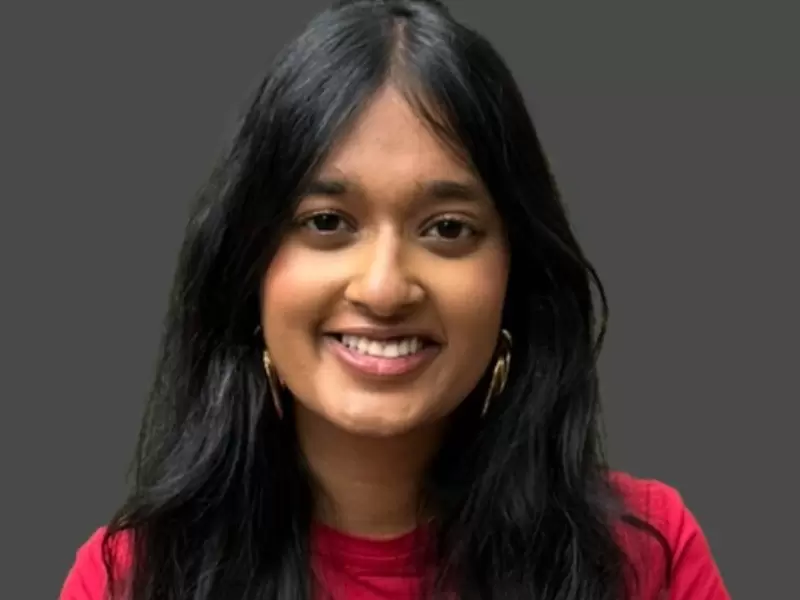

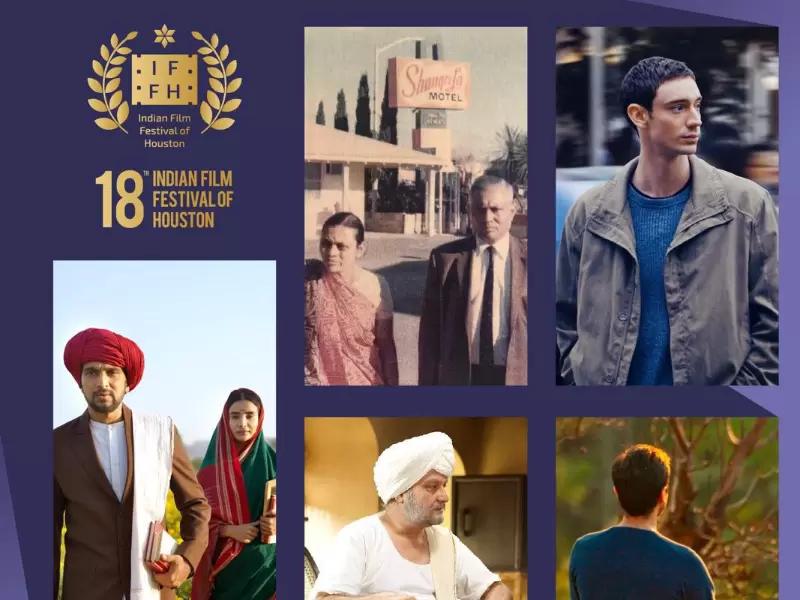
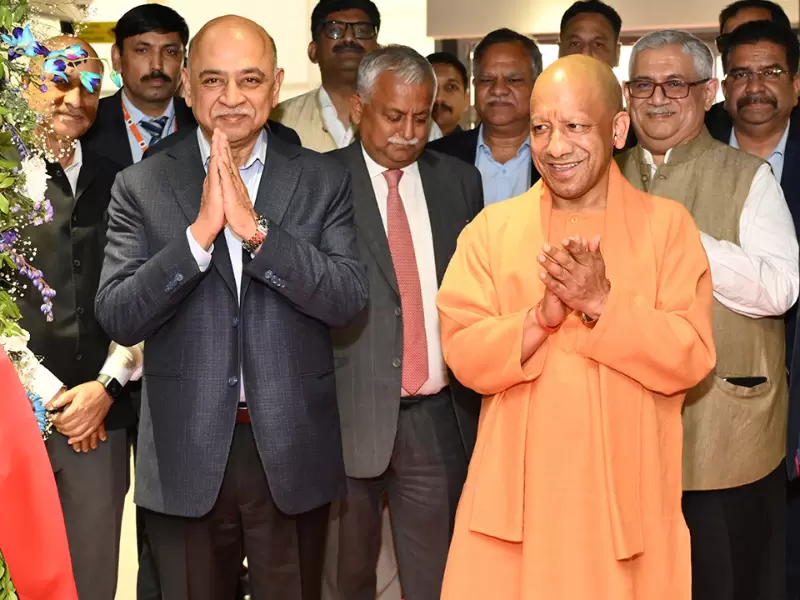
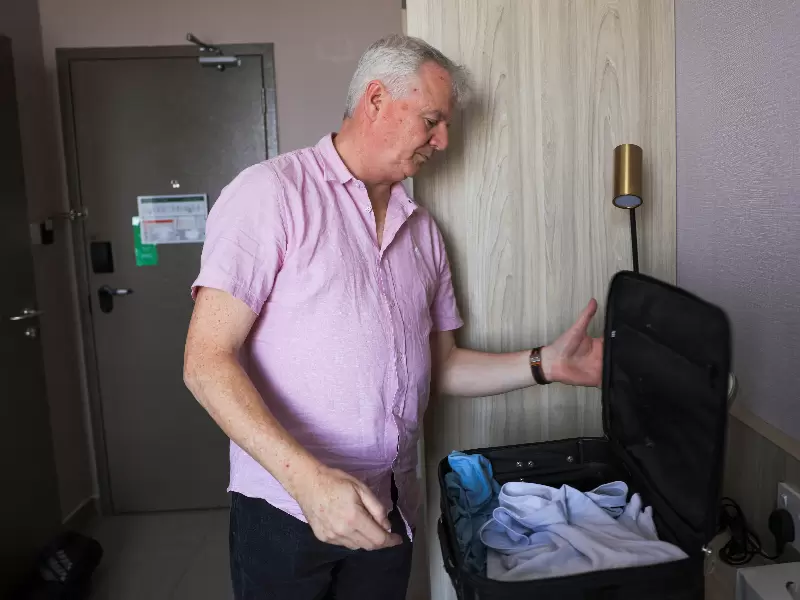
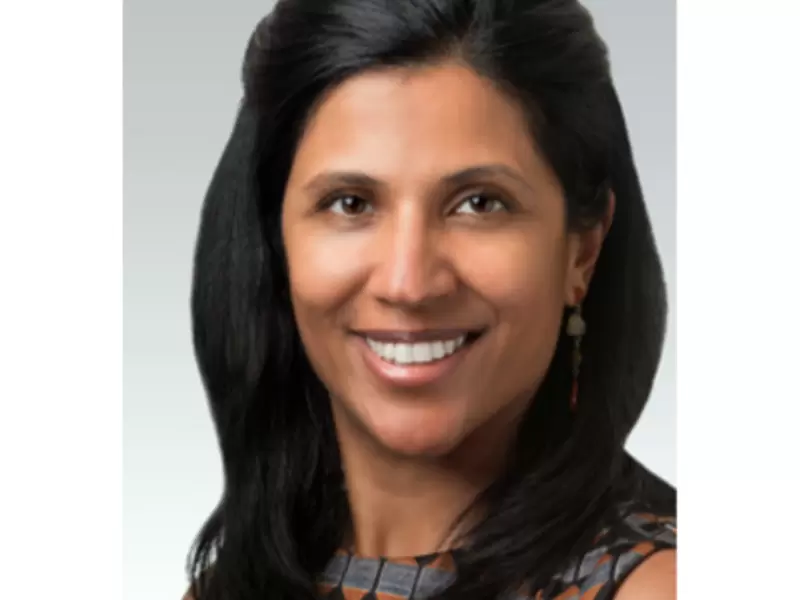
.JPG)
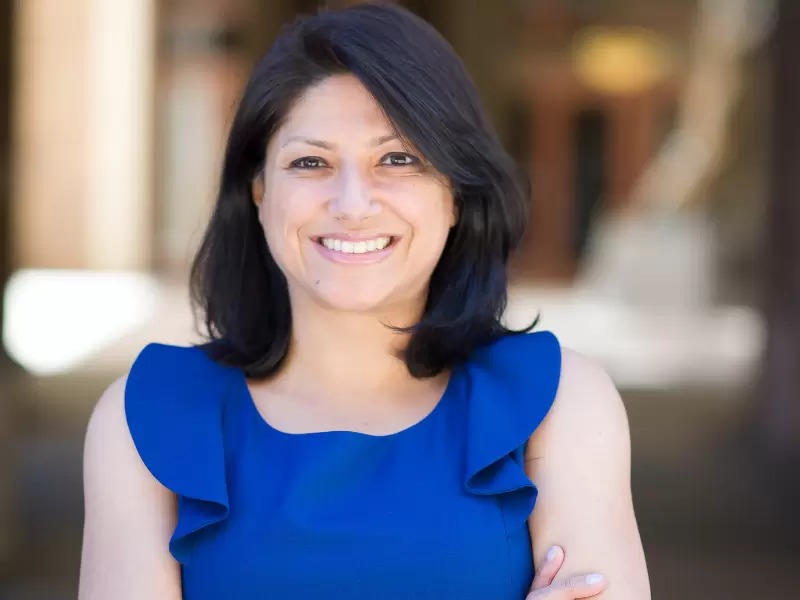
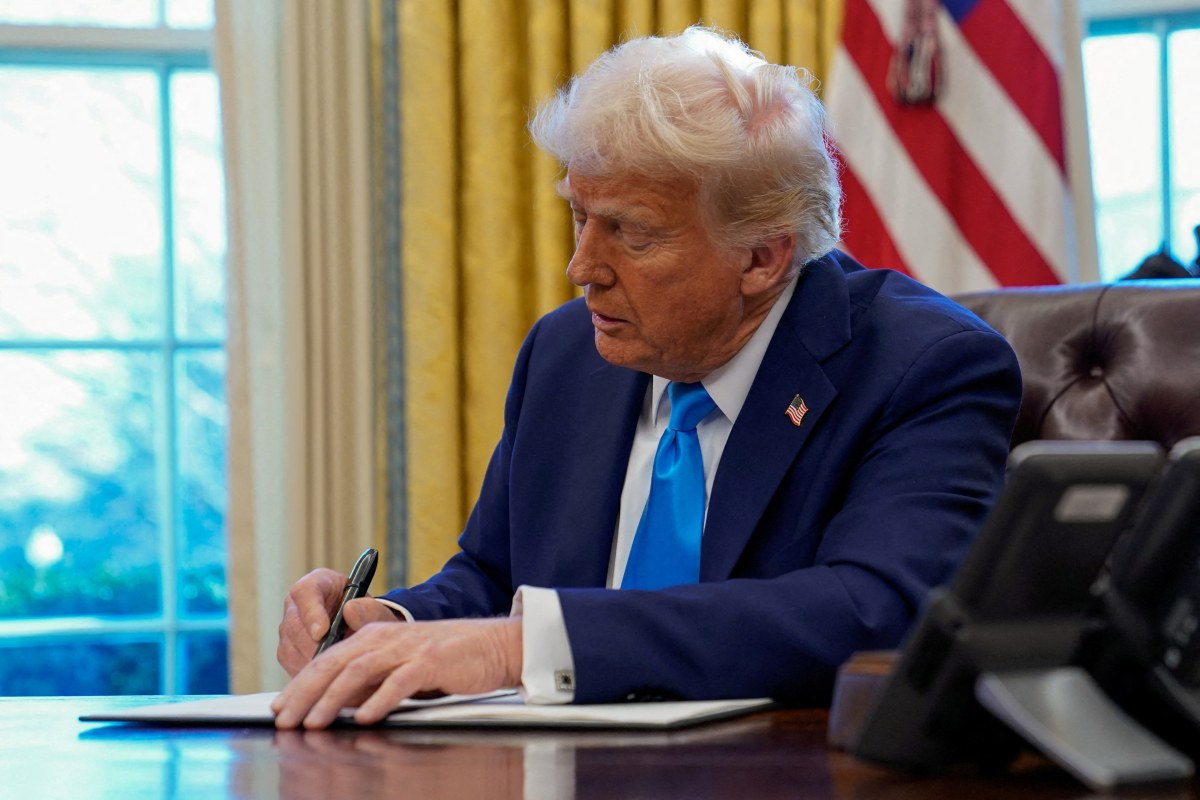


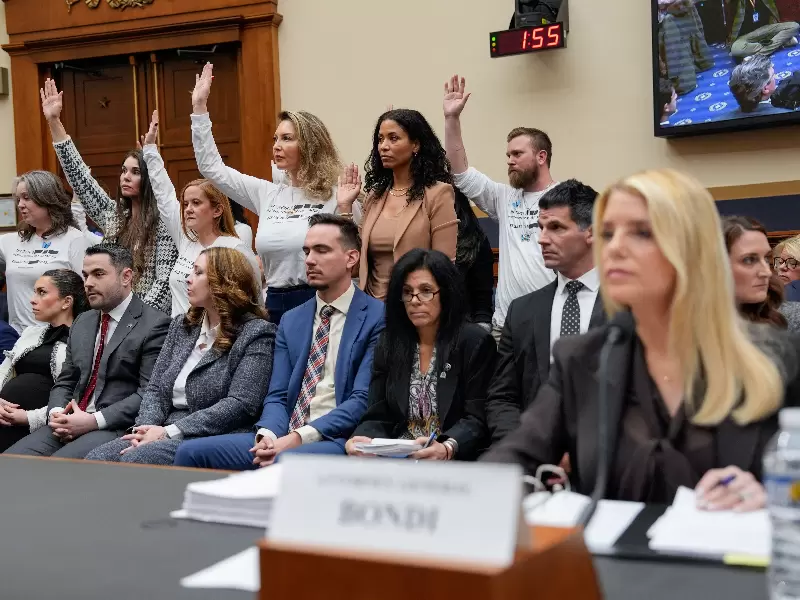


Comments
Start the conversation
Become a member of New India Abroad to start commenting.
Sign Up Now
Already have an account? Login